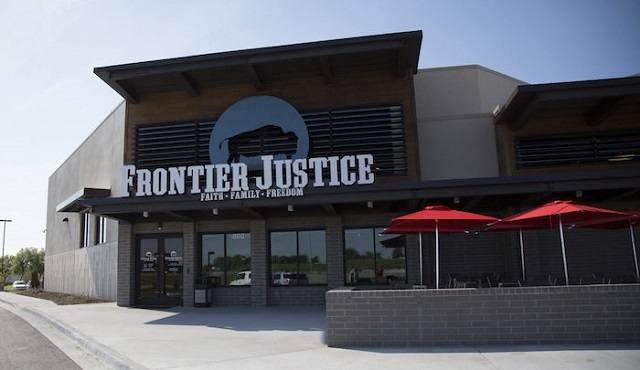I realize that it may be a bit un-cool to dwell too much on one’s own life experiences, but I have a point to make and I hope that I will be forgiven for doing so.
I was born in 1933, in St. Louis County, Missouri, in the midst of the Great Depression. My parents, both of whom came from generations of farm families, had sixth grade educations. Farming was a matter of hard dawn-to-dusk labor, so when children had learned to read, write, and “do their sums,” they were expected to leave school to carry their share of the workload.
When my parents married in 1929 they decided to purchase a small farm, but they had no money and the banks had no money to lend, so their only alternative was to become sharecroppers, giving a 1/3 share of their crops to our landlord in lieu of rent. Sharecropping provided our family with a subsistence, but little else. Nearly all of the food on our table was either from our vegetable garden, from farm animals… chicken, turkey, beef and pork… or the rabbits, squirrels, ducks, geese, and catfish that my father brought home from his frequent forays into our local forests and rivers. Whatever butter and eggs we didn’t need for our own table was taken to South St. Louis every Saturday and sold to regular customers, door-to-door. But then, when war clouds gathered over Europe and the Pacific in the late 1930s my father took a job as a pick-and-shovel ditch-digger at 67½ cents an hour, helping to build a new munitions plant under construction at Weldon Spring, Missouri.
My older sister and I attended a small one-room brick schoolhouse at Harvester, Missouri, three miles from our home, but when my father decided to give up farming for good in 1941 to work in the defense plants, we left our little red brick schoolhouse and moved to St. Charles, a suburb of St. Louis, where we were enrolled at a Lutheran parochial school. And when we completed our primary school education we attended St. Charles High School, a public high school.
I was not a good student and had little interest in high school. However, my parents insisted that if we wanted to get a good job, we had to have a high school diploma. It was the only thing they ever said on the subject. Attending a college or university was never a consideration, so during my four-year high school career I successfully avoided all subject matter related to mathematics and the sciences. I graduated in June 1951, with a GPA of just under 2.0, a C-minus average.
After graduation I took a job as a “grease monkey,” tow truck driver, and mechanics helper at a local automobile dealership, and months later I went to work as an assembly line riveter at McDonnell Aircraft Corporation, a major manufacturer of jet fighter planes for the U.S. military.
Then, in July 1953, I received a letter from the president of the United States; it began with the word “Greetings.” I was drafted into the U.S. Army on August 12, 1953, and was trained as a Field Artillery Operations and Intelligence (O&I) Specialist. After completing my basic training and my O&I training I was sent to West Germany for seventeen months as a member of the post-World War II occupation forces. Upon being honorably discharged in June 1955, I returned to McDonnell Aircraft where I worked as a Production Control Expediter for eighteen months.
During that time, as therapy for an injury to my left knee, the result of a “friendly fire” incident during basic training, I took a second job as a ballroom dancing instructor in St. Louis. Those two jobs kept me fully occupied for at least fifteen hours each day, five days a week. However, my injury prevented me from adequately performing my day job, so I took a job selling sewing machines and vacuum cleaners in the housing projects of St. Louis. My sales territory included the infamous Prewitt-Igo housing project where it was absolutely foolhardy for a white man to enter without an armed escort… let alone attempt to repossess a sewing machine or a vacuum cleaner from a black family who’d failed to make their monthly payments.
Finally, in December 1956, I took a job as a draftsman for Laclede-Christy Corporation, a major refractory manufacturer in South St. Louis. My job was to design open-pit strip mines on leases in Missouri and Illinois, and to assist the company surveyor in laying out prospecting plans for our drilling crews. It was during the nearly two years that I worked for Laclede-Christy that I developed an interest in surveying, mining engineering, and geology.
In February 1957, I married my ballroom dancing partner, with whom I’d earned an all-St. Louis ballroom championship. However, being unable to afford the rent for a house or an apartment of our own, we were forced to move in with my parents. But then, as the economic recession of 1957-58 worsened, I learned that my job at Laclede-Christy was to be phased out. It was then that I made the decision to “escape” into college, to enroll as a full-time student at the University of Missouri College of Engineering. It was something that my supervisors at Laclede Christy had urged me to do, but I had little or no high school background in science and mathematics. So, during the 1957-58 school year I took two evening courses in Intermediate Algebra at Washington University (St. Louis)… just to see if I could handle college-level mathematics.
In two semesters of Algebra I earned two Cs. So in August 1958, armed with nothing but my two Cs and an abundance of hope and determination, I enrolled at the University of Missouri. Since I had no money and no background for the study of engineering, I look back on that decision as the most courageous thing I’ve ever done. After selling everything we owned, except for our clothing and our 1953 Ford, I went to the local Goodwill store and purchased three rooms of kitchen, bedroom, and living room furniture off the junk pile in the alley behind the store for a total of fifty dollars. It was not good furniture; it was on the junk pile for good reason.
In early November, 1957, we were blessed with the birth of a beautiful baby boy who was ten months old in August 1958 when we loaded all of our belongings, including our fifty dollars worth of junk furniture, into a U-Haul trailer and moved into a dilapidated three-room tar-paper shack in Columbia, Missouri, just across the road from the Missouri Tigers football stadium.
Our only regular income was the $125 I received each month under the Korean G.I. Bill… $27 of which paid our monthly rent. The remainder of our income, earmarked for the next semester’s tuition and books, gasoline, utilities, and insurance, left us with a food budget of only sixty cents a day. After we’d purchased milk and other supplies for the baby we were able to afford only beans, spaghetti, and an occasional bottle of ketchup to mitigate the blandness of our starchy diet.
But the biggest shock of all was the difficulty of the course work. I was a 25-year-old veteran with a wife and child to support, and I found myself competing for grades against seventeen and eighteen-year-olds with four years of engineering prep in their high school careers. I attended class every day, I studied very hard, and I completed every homework assignment. Yet, when mid-term grades were posted during my first semester, I found that I was failing every course.
With no alternative, I developed a radical new study regimen. I was in class at 7:40 every morning and completed my lectures by noon. By 1:00 PM I was home, hitting the books, and I refused to turn the page in a textbook until I thoroughly comprehended everything on that page. I was up every morning at 6:00 AM and I studied for fourteen hours a day, every day of the week. It worked. At the end of my freshman year I found that, not only had I turned those Fs around, I was named to the Dean’s Honor Roll.
Our second child was born in January 1960, after which my wife took a night-shift job at the University Medical Center. Each night at 10:00 PM I’d load our sleeping children into the back seat of our Ford and drive my wife to the medical center in time for her 10:30 PM shift. After driving home, I’d return our children to their beds and resume studying until 2:30 or 3:00 AM. After a few hours sleep I was up again at 6:00 AM, changing diapers and feeding the children. And after dropping the boys off at our babysitter’s home, I’d pick up my wife at 7:00 AM and drive her home so that she could get eight hours sleep. I was in class at 7:40 AM, and when I’d completed my morning lecturers I’d return home to repeat my 14-hour study regimen.
It was our daily routine, and it was brutal. When I entered the university in August 1958 I was 6 ft. tall and weighed 153 lb., but when I graduated four years later, in June 1962, I was still 6 ft. tall but I weighed only 116 lb. But I have no regrets. During my junior year I was elected to Chi Epsilon, National Scholastic Honor Fraternity; in 2001 I was elected to the Civil Engineering Academy of Distinguished Alumni; and in 2012 I was named an Honorary Knight of St. Patrick, receiving the Missouri Honor Award for Distinguished Service in Engineering.
During my junior and senior years we had a neighbor with three small children whose husband was serving a long prison sentence. And although she was on the public dole, her in-laws often delivered supplies of freshly-butchered beef and pork from their farm… which she promptly tossed into our neighborhood garbage pails because, as she explained, she didn’t like “that old country meat.” When I returned to the university for my 20th class reunion in 1982, our former landlord reminded me that he and his wife had often seen me rooting through those garbage pails with a flashlight, late at night, digging out food with which to feed my family. It was such a painful experience that I had apparently washed it from my memory.
As we drove away that day, my eldest son said, “Dad! You fed us out of garbage cans?” To which I replied, “Yes, Mark, I did. I did whatever I had to do.”
Those were difficult, character-building years. But now, after more than fifty years of unlimited opportunity and exciting challenge, Barack Obama informs me that I’ve played no role in any of that… that I’ve arrived at this stage of my life because I’ve “won life’s lottery.” I can’t help but wonder what life would be like if I hadn’t purchased that lottery ticket.



